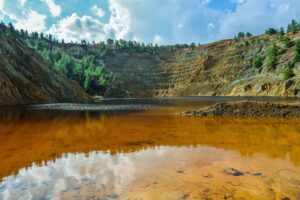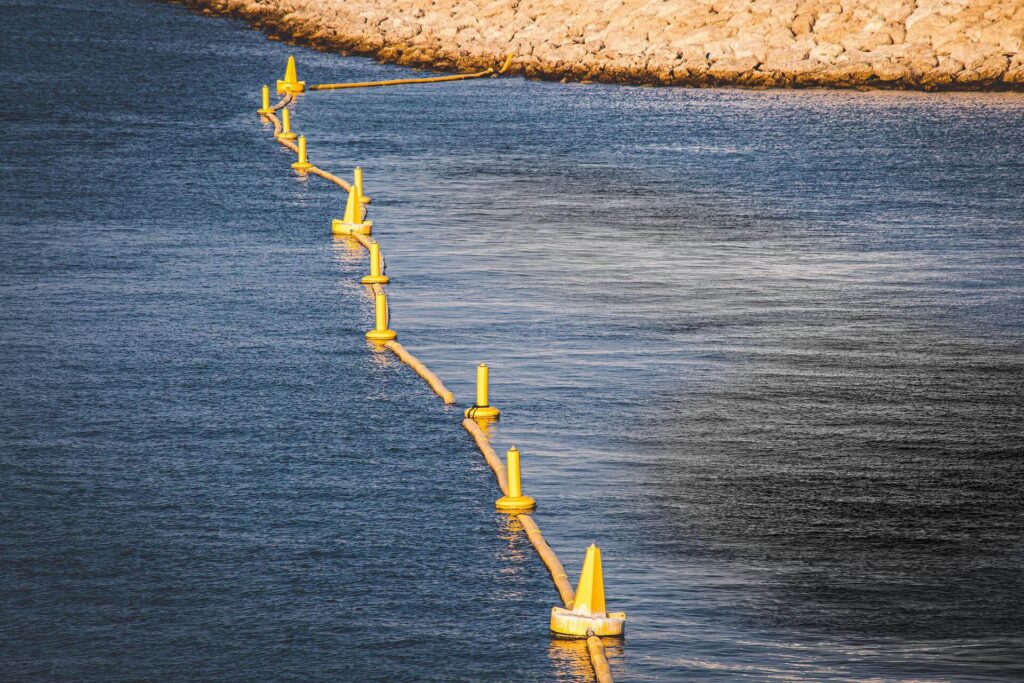Chemical pollution has an irreversible impact on the environment. A classic example is the depletion of the ozone layer. The use of chemicals is significant for humans, but at the same time, discharges of toxins and lengthy substances like radioactive elements, heavy metal compounds, and synthetic organic pollutants have changed the planet’s ecosystem.
What Exactly is Chemical Pollution?
Chemical pollution is the increase or the presence of a potentially harmful chemical that either doesn’t exist naturally in an area or has low concentrations.
A natural disaster such as volcanoes can release chemical pollutants, but most chemical pollution occurs through artificial manufacturing or other human activities, comprising heavy metals and chlorine. Industries largely contribute to chemical marine pollution and chemical water pollution.

What Is the Magnitude of Chemical Pollution?
Human activities presently produce more atmospheric nitrogen than all terrestrial processes. Humans have synthesized more than 140,000 chemicals and mixtures of chemicals (UNEP 2019), most of which did not exist previously. The number is increasing, and the possibility of releasing new chemical pollutants into the environment cannot be denied. The challenge with chemical pollution is that the data available to us is fragmented and largely unknown, considering the large number of chemicals being synthesized each year. The EU has data on just 500 of 100,000 synthesized chemicals.
Effects of Chemical Pollution on Our Health
We can come in contact with harmful chemicals, and they can get into our bodies when we inhale them, consume them, or when they get absorbed through our skin.
Per- and polyfluoroalkyl compounds (PFAs), commonly known as everlasting chemicals, pose one of the most significant risks to human health. These chemicals do not break down. Studies suggest that PFAS may lead to a more significant risk for testicular cancer and kidney failure, an increase in cholesterol levels, and damage to the liver and low immune system.
Effects of Chemical Pollution on the Environment
Chemical pollution remains to be a constant threat to our environment. Trillions of tonnes of chemically active materials are discharged into the environment by mining, mineral processing, farming, construction, and energy production. Industries, poor waste disposal, households, and chemical spill clean-up also add to the release of harmful chemical water pollution, the environment polluting soil and air.
For instance, heavy metals like mercury and lead decrease soil quality and reduce the number of microorganisms in the soil. These microorganisms are responsible for improving soil fertility. Thus, impacting the health and biodiversity of the soil.
Similarly, chemical pollutants that enter water bodies adversely affect the marine ecosystem. Floating plastic waste and chemicals lead to dead zones, which cause the depletion of oxygen levels in the water, directly affecting aquatic life.
Prolonged exposure to chemical pollutants affects the balance of our ecosystem. The negative impacts of chemical contamination go far beyond the examples given above. Chemicals are everywhere, and we constantly interact with them, giving rise to endless possibilities until they are unveiled.
In the meantime, along with stringent regulations to control the increase in chemical pollution, several technologies have been developed to mitigate its effects. Chemical spill clean-up, chemical oil spill dispersant, and mechanical oil water separator are used to control chemical water pollution. Likewise, harmful emissions are monitored and treated before they are released into the environment to control chemical air pollution.
Chemicals are everywhere, and we cannot escape from their reach. The detrimental effects are broad and run deep throughout its life cycle. We must press incremental and transformative actions to tackle chemical pollution.
Frequently Asked Question (FAQs)
Q1. What is chemical pollution caused by?
A. Inorganic fertilizers used primarily in agriculture and gardening; metals and their salts, typically from mine and disposal of mining wastes and smelting activities.
Q2. Why should we stop chemical pollution?
A. The biological and physical processes that support all life are harmed by chemical pollution, which threatens the planet’s systems. For instance, pesticides eliminate many non-target insects, which are crucial to the health of all ecosystems and, consequently, to the production of food, clean water, and air.
Q3. Which of the following is a chemical pollutant?
A. Polychlorinated biphenyls is the appropriate response. Industrial chemicals known as polychlorinated biphenyls (PCBs) are highly hazardous. Deposits at the bottoms of lakes, rivers, streams, and coastal areas collect PCBs.

